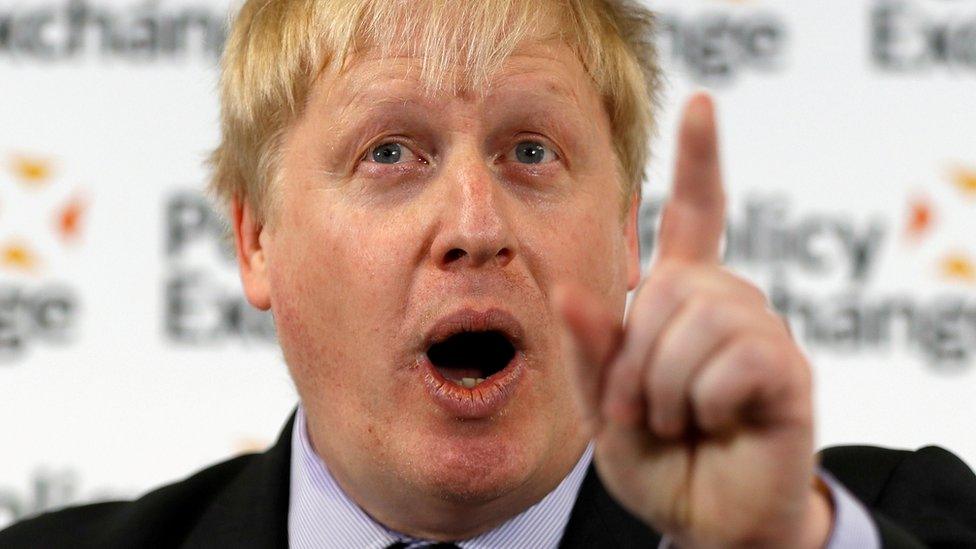Brexit: 10 pointers to explain a fiendishly complicated process
- Published
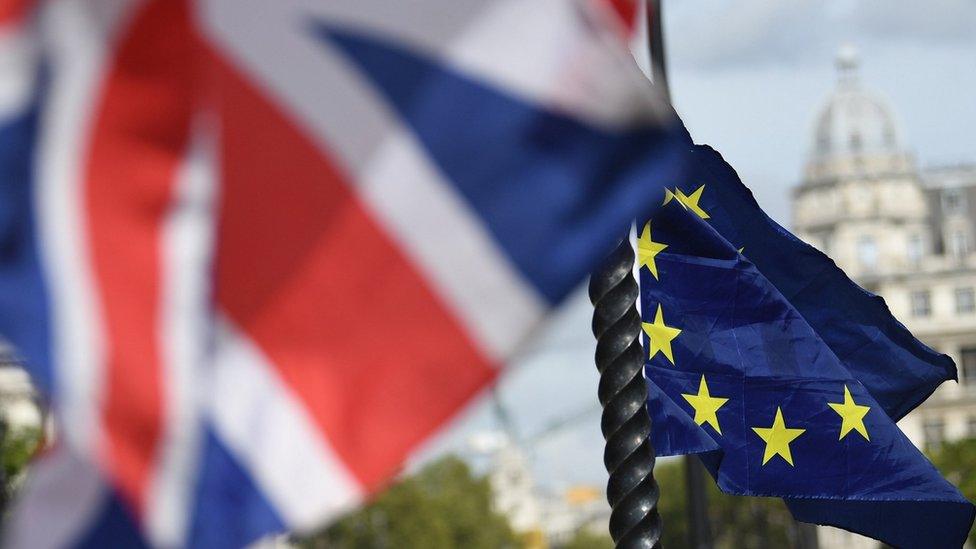
It is simple: the UK is on course to leave the EU in six months' time.
It is also fiendishly complicated because that requires all kinds of rewiring of the government, and business too.
The UK's laws and regulations have been intertwined with the EU's for years and years, so that takes a lot of unpicking.
It is even more complicated because politicians on both sides of the Channel disagree not just about how to separate the country from the EU but also about the kind of relationship there should be afterwards.
By the middle of next month, lots of the arguments should be resolved. But trying to understand what's going on now can be like coming into a TV boxset halfway through.
So here are a few pointers for the next little while if you are trying to work it all out:
1. The negotiating teams are trying to get two things done: the "withdrawal agreement" and the "political declaration" for the future relationship. The first one is like a divorce deal; who gets what when the UK leaves. The second one is the rules and regulation for how we live together in the future.
2. Most of the withdrawal agreement is sorted out, but the two sides are trying to work out what happens to the border between Northern Ireland and Ireland. After Brexit, it becomes the border not just on the island of Ireland but the border between the UK and the EU. At the moment, because so many of the rules and laws are the same on either side, the border is limited - or "soft" - so people and business can whizz back and forwards. But when the UK leaves, the laws and rules on both sides might become more different, which changes things.
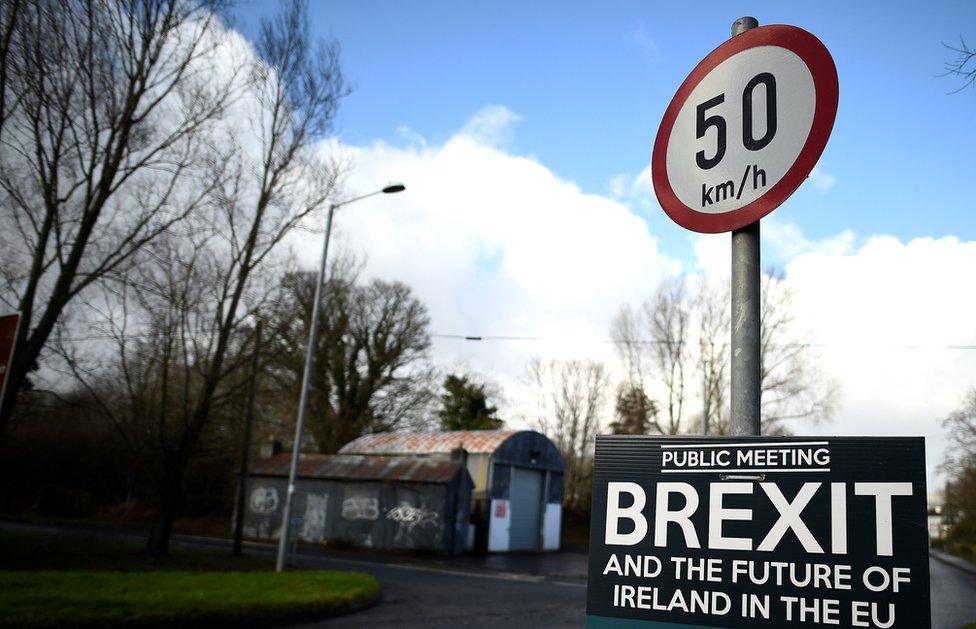
3. The UK thinks that this can be fixed by doing a souped-up trade deal in the second part of the talks - and promised in the "political declaration". The EU wants a legal guarantee that if that deal fails, or isn't done in time, that border will still be 'soft'. The UK agrees that we can't go back to a "hard" border, like the old-fashioned barriers of the days of the Troubles. But the two sides disagree over how to make sure that happens. This is the row about the "backstop".
Read more about the Irish border Brexit backstop
4. UK ministers hope they have a solution - to use the new jargon, the "hybrid backstop" - where there would be some more checks on goods and products between Britain and Northern Ireland. And there is a suggestion that the existing customs arrangement, the "customs union", might apply for several years to come. But they don't just have problems persuading the EU side and Tory Brexiteers that's a sensible way forward. They also have to keep the DUP happy: Northern Irish MPs who say they won't accept anything where Northern Ireland is cut off from, or different to, the rest of the UK.
5. The majority of people in government think that a deal will be done with the rest of the EU. One senior minister says that "even after the most intransigent, difficult meeting, when you are just about to walk out the door, your European counterparts assure you there will be a deal". But there is still a lot of worry.
6. A lot of people in government, but not necessarily in No 10, think the PM will have to ditch her plan in order to get the agreement. The so-called Chequers compromise, that you can read about here, is described as "dead", "over", by those who insist "the EU will say no". Other ministers say the PM will "have to pivot". So the arguments in the next six weeks will be about whatever further compromises she has to make. There is a lot of chatter about another referendum. But remember, this could only come about if the government of the day allowed it. The gathering pace of the People's Vote campaign is notable, but as things stand, another referendum is not actually on the table.
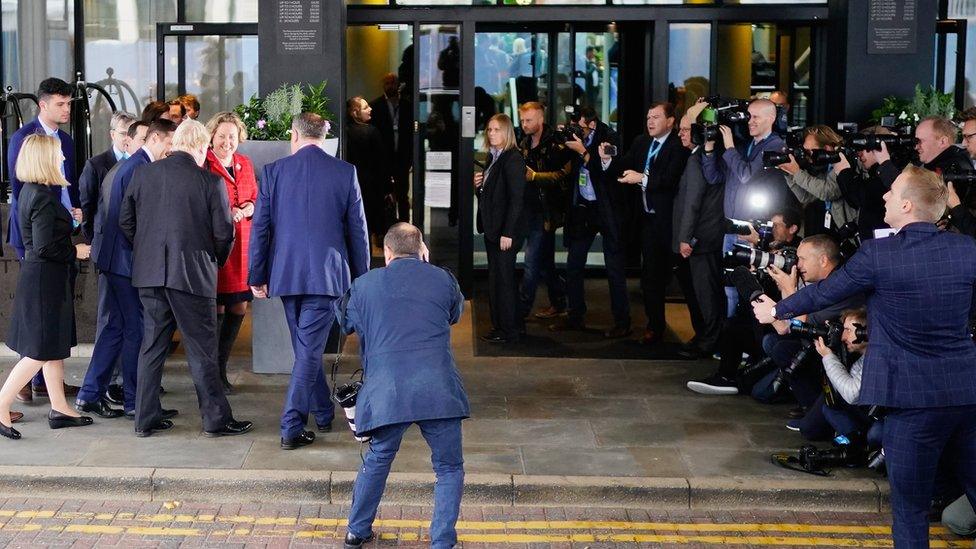
Calls by Brexiteer MPs including Boris Johnson for the Chequers agreement to be scrapped generated a lot of noise on the fringes of the Conservative conference
7. If and when a deal is done in Brussels, however, the prime minister then has to get her deal through Parliament. Remember Theresa May doesn't have a majority there, so she can't be sure of having enough votes to get it through. But the government's tactic is already clear. In the words of one senior figure, "it will be a choice between chaos or a deal that looks pragmatic". Ministers are aiming to get a deal that can get support from as many of their own side as possible but they know they might have to rely on support from some Labour MPs because the numbers are so tight. Whatever you read at the moment, or whatever you hear people on either side say publicly, the government would be crazy not to be trying to court as many MPs as possible because they can't count on their own side. Cross-party conversations are already happening and will continue.
8. Like getting a deal in Brussels, the working assumption among most people inside the government is that the deal will get through Parliament in the end, not because it is expected to be all-singing-and-dancing and fantastic, but because the alternative, a leap into unknown territory, is for most people a less tempting option. This will depend, however, on what has actually been agreed.
Two other quick points, if you've made it this far…
9. There is a different tangle over the level of detail of the final agreement, the political declaration. Traditionally, if the EU can't get agreement on the finer points, they fudge them in order to keep the political show on the road. Plenty of senior people in government believe this is the way through: do the deal, and worry about the detail later. This is not just a question of deal or no deal, vague or not vague; others reckon if the document is wishy-washy, MPs simply won't vote for it. And Germany and France both still want to nail down as much detail as possible.
10. Even if the deal goes through Parliament, we face at least another two years of talks about Brexit, as the contours of the final relationship are hammered out. Even if things go according to Theresa May's plan and we leave smoothly next March, Brexit, and political discussion of it, will be different, but it won't be over.
If that's all too much, (and believe me, you'd be forgiven for feeling that way) in theory, in the next eight weeks or so the final Brexit deal could be done, and passed through Parliament. A lot could go very wrong for No 10. But, for once, it's not hyperbole to say that the next few weeks will determine what happens for years to come.
- Published2 October 2018
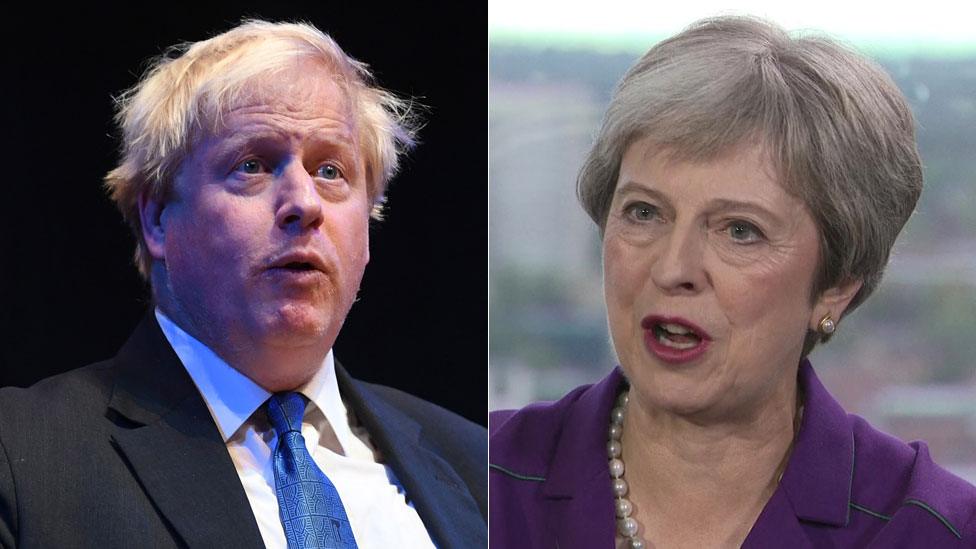
- Published2 October 2018
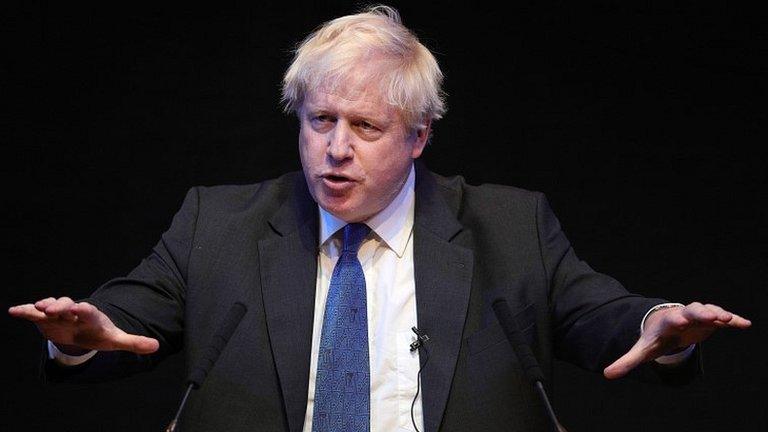
- Published28 September 2018
